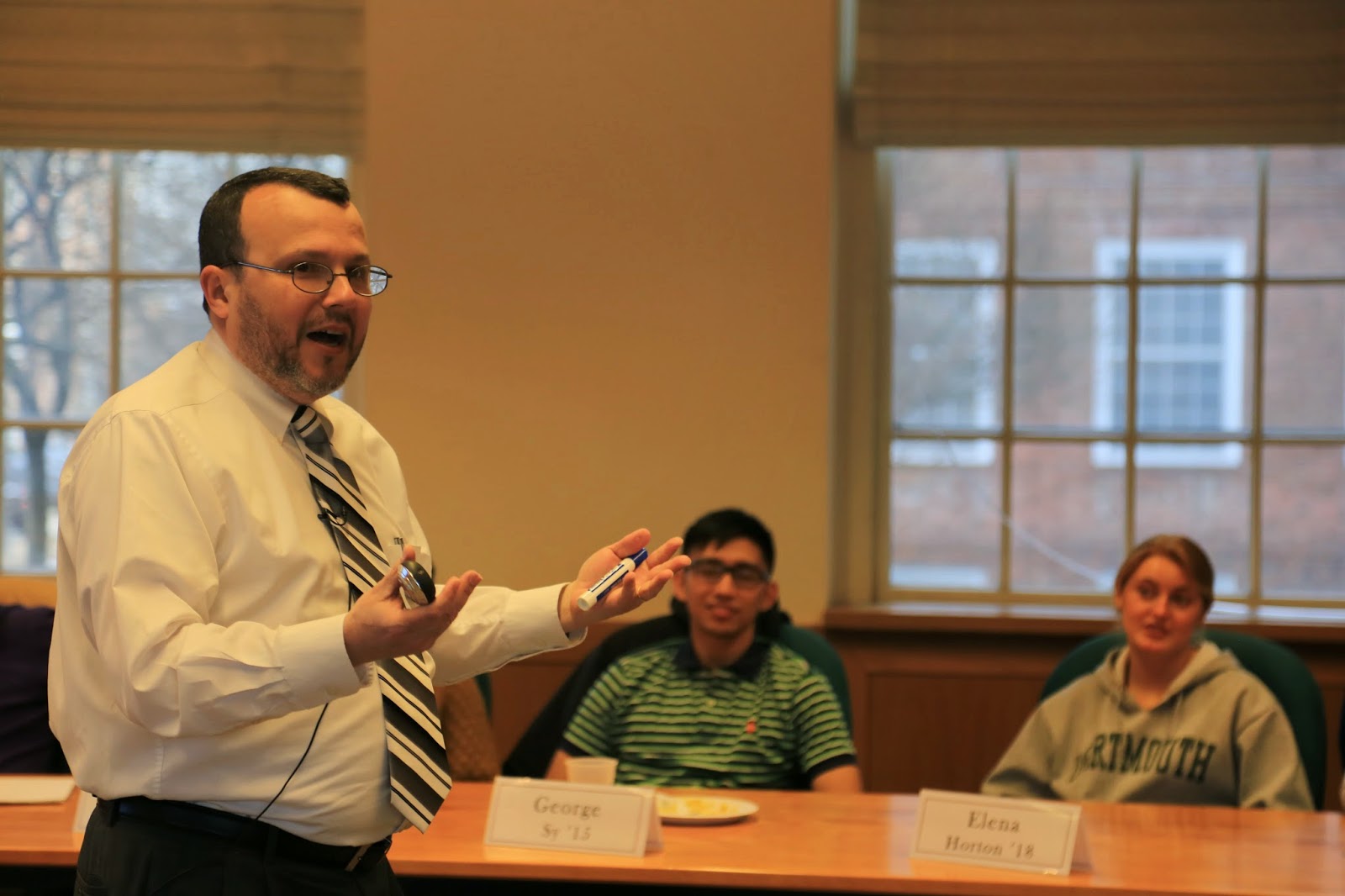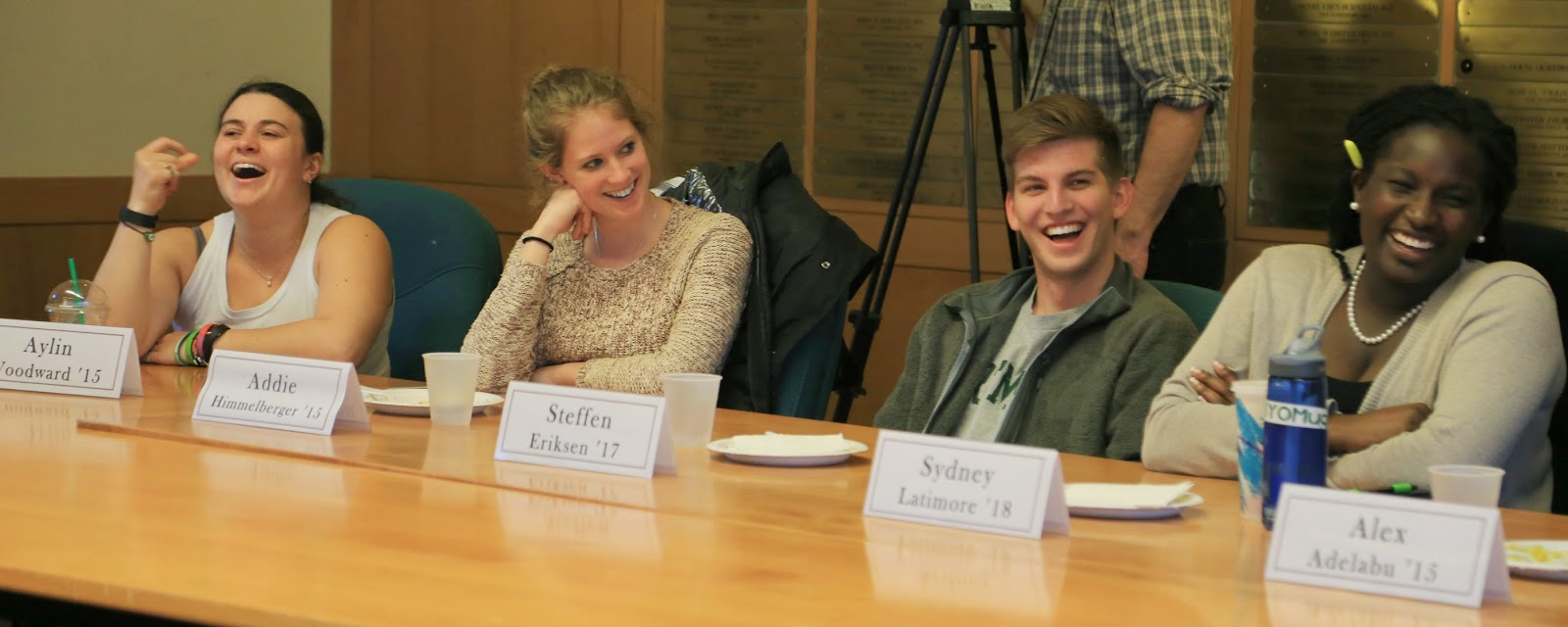- Public Policy
- Leadership
- Funding
- News & Events
- About the Center
Back to Top Nav
Back to Top Nav
Back to Top Nav
Back to Top Nav
This ongoing series explores sessions of the Rockefeller Global Leadership Program (RGLP) through participant narratives. RGLP engages Dartmouth students who have demonstrated leadership skills and would like to extend these skills on a globally conscious level. In this program, students focus on and further develop international leadership competencies, which have become increasingly crucial in corporate, public and non-profit sectors today.
RGLP's second session of the term, entitled "Framing Global Leadership," was a wonderful introduction to the formation of global leadership. It provided an overview from the period of feudal states to development of sovereignty and nations in the 17th century and eventually to the idea of individual identity in the 21st century. Dr. Perruci challenged us to think progressively and truly push the boundaries of cultural norms. He suggested that the "crux" of our generation would not be nationalist identity or religious identity, but individual identity. Instead of being entrenched in a local awareness, trapped by our own biased perspectives, Dr. Perruci encouraged us to engage more global perspectives.
 |
| Dr. Gama Perruci leads RGLP's second session through the intellectual history of global leadership. Photo by May Ngyuen '18. |
Dr. Perruci’s definition of an "international leader" versus a "global leader" was especially fascinating. According to Dr. Perruci, an international leader includes individuals who have developed a global awareness, as well as a global attentiveness, and able to effectively communicate abroad. By contrast, a global leader is an individual who has mastered a global consciousness, able to incorporate multiple cultural identities into his or her own worldview. Similarly, a global leader engages in global citizenship, identifying as a citizen of the world. Overall, a global leader can transcend cultural boundaries and operate on a transnational basis. Furthermore, global leaders share a transnational mindset, are comfortable with ambiguity, have the ability to connect the dots, and are effective cross-cultural communicators. The idea of "comfort with ambiguity" was especially interesting, provoking inter-group debate. It encompasses the need to refrain from placing individuals into defined "boxes" of identity, as well as comfort with the existence of an interdependent global community without well-defined cultural or political boundaries.
 |
| RGLP participants learn the challenges of intercultural understanding through an acitivity design to test their assumptions. Photo by May Nguyen '18. |
In closing, Dr. Perruci led us through a cultural simulation in which we interpreted a fictitious culture’s "welcoming ceremony." Our group observed this ceremony through the lens of our own cultural biases, which led to a misinterpretation of societal values through such concepts as gender inferiority. When Dr. Perruci revealed to us the values of the fictitious culture, we were surprised at the inaccurate nature of our presumptions. It revealed how ethnocentric our process of observation was and the need to be more open-minded in cross-cultural encounters. The activity was incredibly enlightening, and it forced us to be critical of our own internalized biases.
-Written by Lydia Cash '16, Spring 2015 RGLP Participant